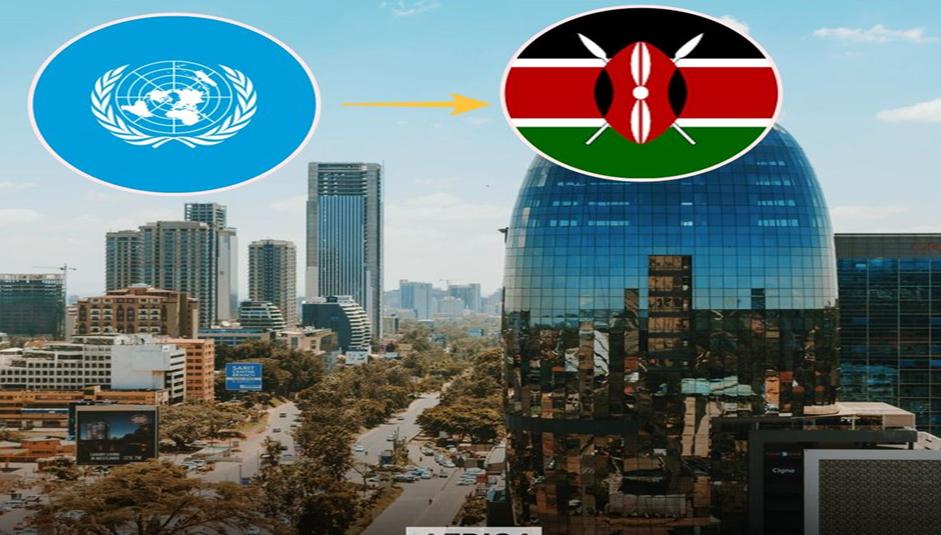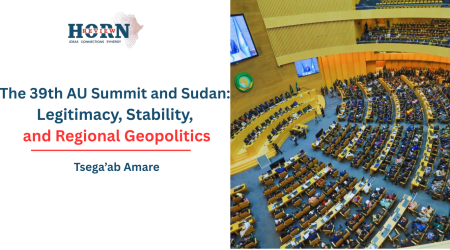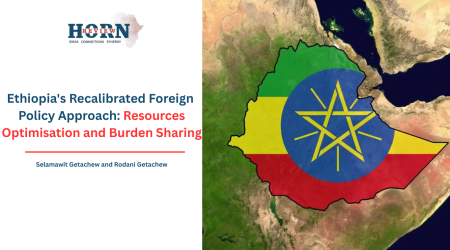
3
Sep
Kenya To Host UN Agencies: Is Ethiopia Losing Its Bid As Africa’s Capital?
Following the funding shortfalls, the United Nations and its agencies are eyeing the Horn of Africa to restation its agencies from the US to Africa. The eligible countries are Kenya and Ethiopia and, if we assume their bid, which country offers better conditions? The Horn of Africa is a center of attention for its lingering political instability, civil wars, conflicts, territorial disputes, and proxy wars.
These issues raise eyebrows, given the region’s geostrategic significance. Nonetheless, Kenya’s and Ethiopia’s rivalry goes beyond this to be a leading pro-Western anchor state of the democratic-legal world. The two countries long-standing rivalry goes beyond the area of diplomacy, economic development, but also in Athletics. Symbolically speaking, Ethiopians remember how the Kenyan runner Josephat Machuka punched Haile Gebreselassie in the back during the 1992 World Junior Championships (10,000-meter race) in Barcelona out of frustration when Haile passed over the front Kenyan runner towards the end of the race.
This wide-ranging rivalry between the two countries has recently been fueled by the announcement of the UN plan to move its agencies to Nairobi. The latter, if it happens, would make Kenya another global hub for UN operations in line with New York, Geneva, and Vienna.
For so long, Ethiopia has served as the continent’s diplomatic hub by hosting the African Union (AU) headquarters and various regional bodies, including the UN Economic Commission for Africa (UNECA). Ethiopia was also a strong anti-terrorist ally of the US during the Clinton and Obama administrations.
On its part, Kenya is a primary business and tech hub in East Africa, with its capital in Nairobi, a key center for businesses, infrastructure development, and the “Silicon Savannah” for technology. The two rival African states, however, are closely watching their backs to avoid one taking over the other’s unique regional dominance. While Ethiopia has recently been working to improve its technological advancement, especially through digitalization and infrastructure development, such as corridor and riverside development, Kenya is working hard to overtake Ethiopia’s status as the continent’s diplomatic hub and become the darling of the West. The recent United Nations’ decision to build new offices and relocate some key agencies in Nairobi must be alarming to Ethiopia.
The UN will spend 340m dollars for this project, which involves building new offices, with UNICEF, UNFPA, and UN Women, by moving more of their operations to Kenya once the decision is final. Responding to questions from reporters on Friday, August 1, 2025, UN Deputy Spokesperson Farhan Haq clarified that the relocation decision is not yet final. If the decision becomes final, this project will be the largest investment the UN Secretariat has undertaken in Africa since its inception, besides peacekeeping.
Even if some Kenyan analysts seem skeptical whether the presence of the UN agencies in Kenya will improve the lives of people or not, and openly argue that it will further exclude people who live in a precarious situation by exacerbating the existing inequalities in a city. Yet most Kenyan officials believe that this move will make “Kenya one of the global UN hubs and global spotlight”.
The flow of high-income people to a city is indeed an advantage to the economy. The influx of international stuff in the city might force some people to leave the center to the rich, as the living expenses will increase in the area where high-income people prefer to live. Yet the disparity between the growing rich and the increasingly poor people is the dilemma of market capitalism.
Yet people should ask why the government is necessary. If business is good and governments can earn more from taxes and an increasing flow of foreign currency, the balancing act should be a priority for governments. Governments should reach out to the people by creating jobs and affordable housing, and finding ways to allow the people to have cheap commodity access for those who cannot buy from standardized supermarkets.
This case of the UN agencies’ relocation to Kenya, however, should urge Ethiopians to rethink their current international status. As was planned, if major UN agencies, including UNICEF, UNFPA, and UN Women, relocate their headquarters to Nairobi by 2026, then this means that the current administration is not attractive enough for these agencies to move to Ethiopia.
Given its role as the political and diplomatic capital of the African Union and other regional bodies, it should have been easy for Ethiopia to use the former as a springboard to stand out as the best candidate for hosting international organizations.
The central reason for moving the UN headquarters is the reduction of costs, which saves money once the headquarters are stationed in low-cost African cities compared to high-cost Western cities. The UN80 reform agenda already announces its aim to decentralize operations to more cost-effective regions. There is no doubt that the UN took the right decision by moving its offices to Africa to fulfill its objectives.
Nonetheless, the decision to choose Kenya over Ethiopia is controversial if we imagine such a comparison to be made before the decision. If we objectively compare Addis Ababa and Nairobi, Addis Ababa is highly equipped to host the UN agencies than its neighboring Nairobi. Whether it is in terms of providing favorable and affordable living conditions, such as weather and the cost of living, as well as the working conditions, Addis Ababa is the best candidate.
In terms of safety, Addis Ababa is safer than Nairobi, albeit the civil wars spreading in the rural parts of Ethiopia are a downside. If we compare the corruption level, Ethiopia has a lower status than Kenya. Moreover, the hospitality experience of Kenya is incomparable with Ethiopia, whose history of hospitality goes back to thousands of years within the ancient monarchies’ tradition. Above all, Ethiopia’s pioneer role in fighting colonial aggressions and for the freedom of people both internally and beyond in the whole of Africa is a key reason for the UN to station its agencies in Addis Ababa.
Although it is difficult to speculate over the overall reasons why the UN administration chose Kenya over other African countries, especially neighboring Ethiopia, the objective conditions show that Ethiopia can fulfill not only the basic conditions in a better way, but also provide the facilitation of the UN offices’ tasks by linking them with the AU and other diplomatic offices in Addis that has similar role and objectives: “collective responsibility for maintaining global peace and security”.
The UN officials would no longer take a full-day flight to meet AU and EU officials based in Addis Ababa, which is good not only to minimize costs but also to control the harsh climate change. Stationing the office in Addis is a better option than Nairobi, not only because the international and AU organizations’ offices can be reached within a few minutes’ bike ride, but also because Ethiopia’s specialization in this area is a plus that can be tapped into to undertake the UN tasks.
By Markos Haile Feseha(PHD), Researcher, Horn Review
Reference
Murani, Hillary. 2025. “As UN agencies mull Kenya move, some fear exclusion from Nairobi’s growth.” Al Jazeera, August 20. https://www.aljazeera.com/features/2025/8/20/as-un-agencies-mull-kenya-move-some-fear-exclusion-from-nairobis-growth










